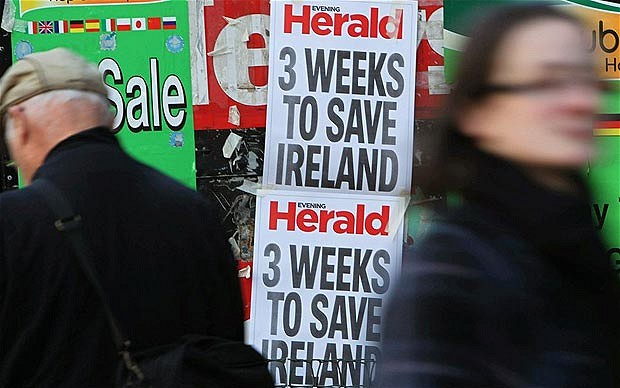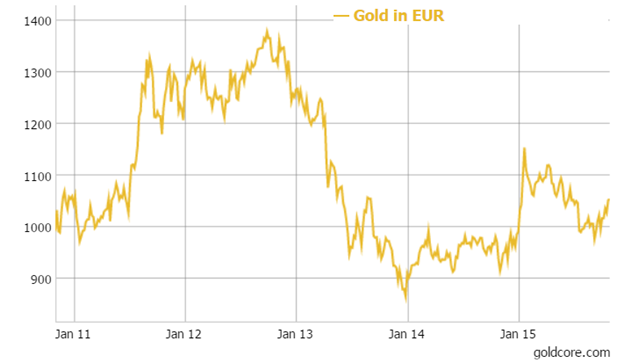The European Commission is taking legal action against six European countries, including the Netherlands and Luxembourg, after they failed to implement rules that would allow for depositors to have their cash confiscated.
Six countries will be referred to the European Court of Justice (ECJ) for their continued failure to transpose the EU’s “bail-in” laws into national legislation, the European Commission said last Thursday according to The Telegraph.
Taxpayers bailed out banks in the first global financial crisis. Depositors will be in the firing line the next time. Photo: AFP
Most EU countries, UK, the U.S., Canada, Australia and New Zealand all have plans for bail-ins in the event of banks and other large financial institutions getting into difficulty. It is now the case that in the event of bank failure, personal and corporate deposits could be confiscated.
The referral comes after the EU issued a warning against Poland, the Netherlands, Luxembourg, Sweden, Romania and the Czech Republic for their non-compliance earlier this year.
The rules – known as the Bank Recovery and Resolution Directive (BRRD) – are designed to stop governments from having to foot the bill for saving banks from going bust by instead forcing savers and deposit holders to foot the bill in an attempt to further protect banks from insolvency.
Brussels will refer six countries to the European Court of Justice over their failure to apply the new, very radical “bail-in” rules. Deposits of less than €100,000 should be protected under the new regime but in reality these limits are arbitrary and would likely be reduced to lower levels in the event of banks being insolvent again in another European and global financial crisis.
In the event of a systemic European banking crisis, however, laws could be changed at the stroke of a pen and “bail-in” mechanisms could become fully operational. Also, the comforting guarantee of €100,000 ($100,000 or £80,000) would likely be reduced in such a crisis.
The era of depositor bail-ins is coming and preparations are in place by the international monetary and financial authorities for bank bail ins. Financial interests of banks are once again being placed over those of small and medium businesses and taxpayers in general. The majority of the public is unaware of these developments, the risks and ramifications, and how they can protect their money.
Download Guide – Protecting Your Savings In The Coming Bail-In Era (11 pages)
Download Guide – From Bail-Outs to Bail-Ins: Risks and Ramifications(51 pages)
DAILY PRICES
Today’s Gold Prices: USD 1165.74, EUR 1054.55 and GBP 759.52 per ounce.
Yesterday’s Gold Prices: USD 1168.50, EUR 1058.86 and GBP 761.96 per ounce.
(LBMA AM)
Gold closed at $1,163.70/oz yesterday, having lost a small 0.08% or $0.90. Silver was unchanged for the day, remaining at $15.86/oz.
Gold in EUR – 1 Year
Gold is 0.3% higher in euros, pounds and dollars this morning, snapping four straight days of losses that have pulled prices further from this month’s near four-month high. This morning’s trading range has been narrow, with less than $5/oz between its lows and highs of the day so far.
Silver’s also 0.4% higher, but platinum and palladium are both down by more than 0.5%. For the month of October, silver and platinum have outperformed, up 9.4% and 9.5% respectively. If it holds its ground until the end of the month, platinum will post its biggest monthly gain since January 2012.
Download Essential Guide To Storing Gold In Singapore



